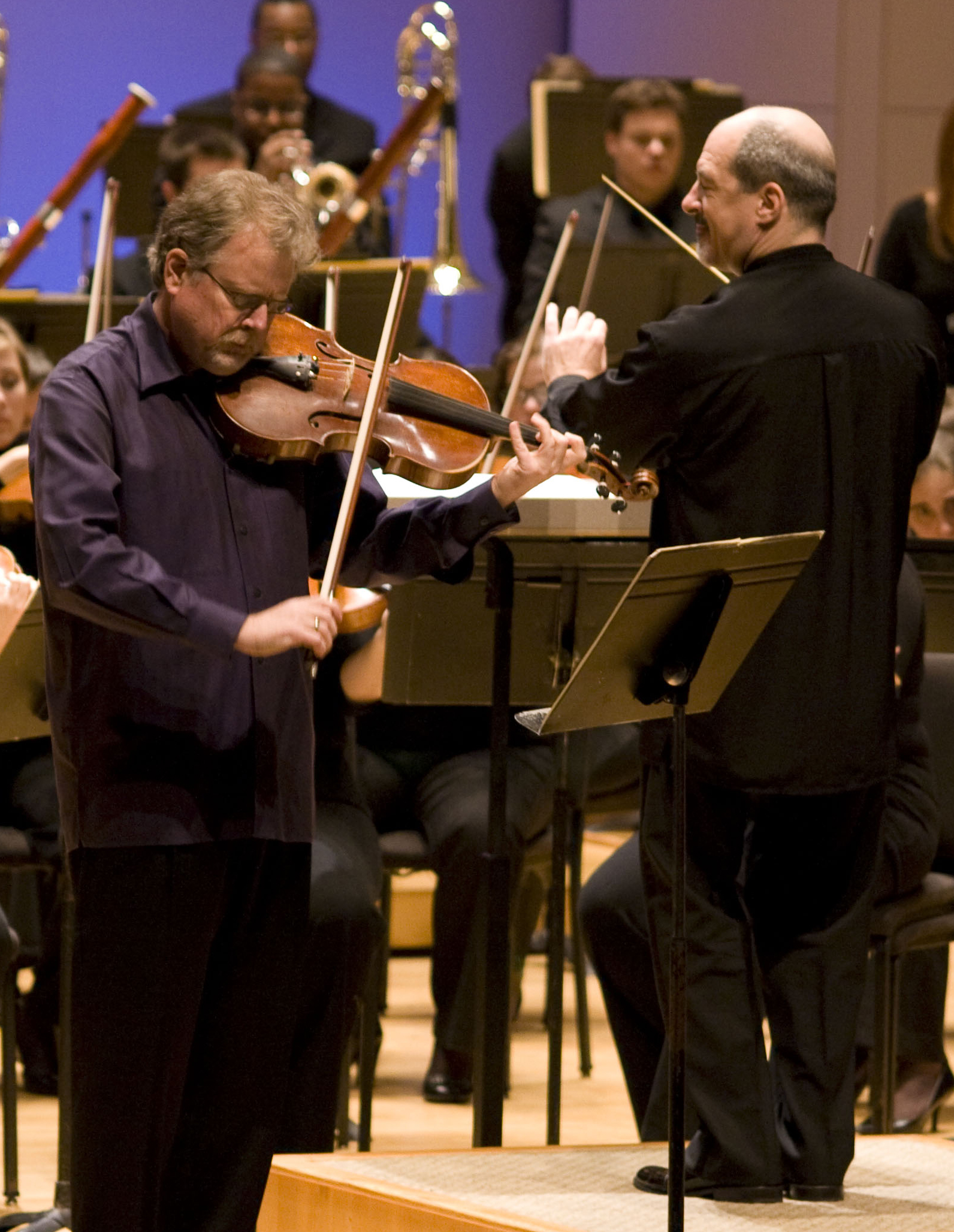A viola called Harold lifts New World’s French program
For an example of the fine line between musical genius and madness, one can’t do much better than Hector Berlioz’s Harold in Italy, the last five minutes of which offer some of the most unhinged and exhilarating pages in the symphonic repertoire. Berlioz’s Byronic travelogue was heard Friday night at the Lincoln Theatre, as part of the New World Symphony’s French program led by Robert Spano.
Impressed by Berlioz’s Symphonie fantastique, the great violin virtuoso Paganini commissioned a concerto from the French composer to show off his new Stradivarius viola. Yet Paganini was baffled when Berlioz presented him with the first movement and rejected the score, saying, “There’s hardly anything for me to do!”
It’s true that Harold in Italy, inspired by Lord Byron’s poem, is not the show-offy solo concerto Paganini desired. While the viola is often in the spotlight, the solo passages are more reflective than virtuosic, and the soloist disappears for long stretches, including — rather anticlimactically — the bravura coda.
Still, even with little discernible programmatic ties to Byron’s poem, Berlioz’s four-movement symphony contains much wonderful music, with the composer’s audacious orchestration, far-flung contrasts and extreme tempo reverses making for a wild and entertaining ride.
Reid Harris, principal viola of Spano’s Atlanta Symphony Orchestra, was the superb soloist Friday night. Recognizing the awkward role of the viola in this work, Harold was presented with clever if unorthodox stage management. The professorial Harris sauntered in from the wings following the extended introduction for his first solo, and then exited and entered for his later passages, spending the middle movements seated with the woodwinds. Three string players also left the stage to join Harris in his final quartet passages offstage, which proved most effective.
Harris’s viola possesses a lovely burnished tone and he played with seamless legato and just the right poetic touch, neither star soloist nor orchestra member. Under Spano’s alert direction the New World members brought out all the atmosphere and color of Berlioz’s musical travelogue with evocative Alpine winds and a suitably frenzied “Orgy of the Brigands” finale, which rounded the symphony off in thrilling fashion.
The first half of the program provided more mixed rewards. Henri Dutilleux wrote The Shadows of Time for the Boston Symphony Orchestra, a work inspired by the 50th anniversary of the end of World War II.
Cast in five movements, the work has some Dutilleux handprints, notably the Proustian woodblock tick-tock of passing time that opens and closes the work, and the offbeat resources, particularly the three (uncredited) female voices representing children victims of war.
The still-active Dutilleux turns 93 in two weeks, and remains France’s finest living composer, yet I’m not sure The Shadows of Time is one of his more successful works. His expressive restraint, luminous textures, and precisely calibrated colors are only fleetingly apparent, often giving way to a more aggressive generalized vehemence, which seems at odds with Dutilleux’s acutely refined palette. The five movements tend to sprawl and the attempts at direct emotional appeal — especially the voices in the third movement crying, “Why Us? Why? Why the star [of David]?”– feel calculated and more than a bit heavy-handed.
Spano drew committed and polished playing from the musicians, though one had the feeling that Dutilleux’s work might have made a surer impact with more delicacy and hushed dynamics.
It may have been a bit over-ambitious to program Iberia with both the Dutilleux and Berlioz’s Harold, for the performance of Debussy’s homage to Spain proved the least successful work of the evening,
The central triptych of Debussy’s Images, Iberia remains the most evocative and masterfully scored work of the many Spanish-flavored creations by French composers. The playing was largely inspired, some initial wind tuning apart, and the lively outer movements came off well, with apt brash vigor and exuberance to the closing, Le matin d’un jour de fetes.
But too much of this unsubtle Iberia felt more like a running of the bulls. Debussy said this music should sound as if it “had not been written down” and Friday night’s performance felt all too boldly outlined. The evocative Les Parfums de la nuit in particular was loud and lacking in atmosphere, missing the sense of languid nocturnal mystery.
The program will be repeated 7:30 p.m. Saturday and 3 p.m. Sunday. 305-673-3331; www.nws.edu.
Posted in Performances
Leave a Comment
Sat Jan 10, 2009
at 1:58 pm
No Comments







